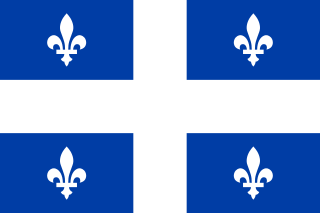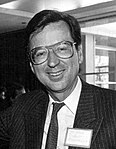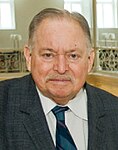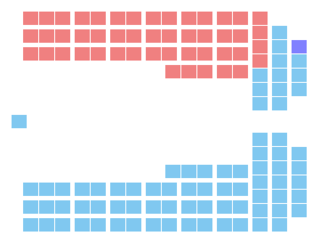
The Quebec general election of 1998 was held on November 30, 1998, to elect members of the National Assembly of the Province of Quebec, Canada. The incumbent Parti Québécois, led by Premier Lucien Bouchard, won re-election, defeating the Quebec Liberal Party, led by Jean Charest.
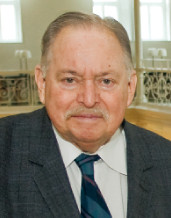
The Quebec general election of 1994 was held on September 12, 1994, to elect members of the National Assembly of Quebec, Canada. The Parti Québécois, led by Jacques Parizeau, defeated the incumbent Quebec Liberal Party, led by Premier Daniel Johnson Jr.

The Quebec general election of 1985 was held on December 2, 1985, to elect members of the National Assembly of the Province of Quebec, Canada. The Quebec Liberal Party, led by former premier Robert Bourassa, defeated the incumbent Parti Québécois, led by Premier Pierre-Marc Johnson.

The Quebec general election of 1981 was held on April 13, 1981, to elect members of the National Assembly of the Province of Quebec, Canada. The incumbent Parti Québécois, led by Premier René Lévesque, won re-election, defeating the Quebec Liberal Party, led by Claude Ryan.

The Quebec general election of 1976 was held on November 15, 1976 to elect members to National Assembly of the Province of Quebec, Canada. It was one of the most significant elections in Quebec history, rivalled only by the 1960 general election, and caused major repercussions in the rest of Canada. The Parti Québécois, led by René Lévesque, defeated the incumbent Quebec Liberal Party, led by Premier Robert Bourassa.

The Quebec general election of 1973 was held on October 29, 1973 to elect members to National Assembly of Quebec, Canada. The incumbent Quebec Liberal Party, led by Premier Robert Bourassa, won re-election, defeating the Parti Québécois, led by René Lévesque, and the Union Nationale (UN).

The Quebec general election of 1970 was held on April 29, 1970, to elect members of the National Assembly of Quebec, Canada. The former Legislative Assembly had been renamed the "National Assembly" in 1968. The Quebec Liberal Party, led by Robert Bourassa, defeated the incumbent Union Nationale, led by Premier Jean-Jacques Bertrand.
The Quebec general election of 1886 on October 14, 1886 to elect members of the 6th Legislative Assembly for the Province of Quebec, Canada. The Parti National, a broad coalition formed and led by Honoré Mercier, that included the Parti libéral du Québec and nationalist defectors from the Conservative party. The Parti national got a large boost when Liberals and dissident Conservatives rallied in reaction to the hanging of Louis Riel in 1885, for which the federal Conservatives were held responsible by Quebec voters. The nationalists won a majority of seats against the Parti conservateur du Québec, led by John Jones Ross.

Jacques-Yvan Morin, was professor of law and a politician in Quebec, Canada. Morin graduated from the McGill University Faculty of Law in 1953, where he was the founder of the McGill Law Journal. He taught international and constitutional law at Université de Montréal from 1958 until 1973. He was deputy director of the Canadian Yearbook of International Law from 1963 to 1973 and founded the Quebec Journal of International Law in 1984.
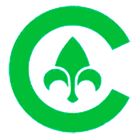
The Ralliement créditiste du Québec was a provincial political party in Quebec, Canada that operated from 1970 to 1978. It promoted social credit theories of monetary reform, and acted as an outlet for the expression of rural discontent. It was a successor to an earlier social credit party in Quebec, the Union des électeurs which ran candidates in the 1940s.

Parti 51 is a minor political party in the Canadian province of Quebec that was founded in the late 1980s under the leadership of Serge Talon. The party proposed the separation of Quebec from Canada in order to seek admission to the United States as the 51st state of that union. The party had no success in winning any seat in 1989 election to the National Assembly of Quebec, and in the spring of 1990, asked the Direction of Elections of Quebec to dissolve the party because it no longer had enough members to form an executive committee.

André Boisclair is a politician in Quebec, Canada. He was the leader of the Parti Québécois, a social democratic and sovereigntist party in Quebec.

The Union Nationale was a conservative and nationalist provincial political party in Quebec, Canada, that identified with Québécois autonomism. It was created during the Great Depression and held power in Quebec from 1936 to 1939, and from 1944 to 1960 and from 1966 to 1970. The party was founded by Maurice Duplessis, who led it until his death in 1959.
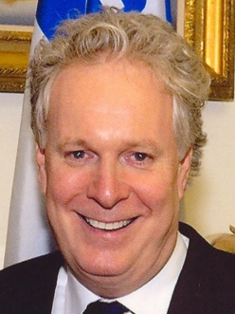
The Quebec general election of 2007 was held in the Canadian province of Quebec on March 26, 2007 to elect members of the 38th National Assembly of Quebec. The Quebec Liberal Party led by Premier Jean Charest managed to win a plurality of seats, but were reduced to a minority government, Quebec's first in 129 years, since the 1878 general election. The Action démocratique du Québec, in a major breakthrough, became the official opposition. The Parti Québécois was relegated to third-party status for the first time since the 1973 election. The Liberals won their lowest share of the popular vote since Confederation, and the PQ with their 28.35% of the votes cast won their lowest share since 1973 and their second lowest ever. Each of the three major parties won nearly one-third of the popular vote, the closest three-way split in Quebec electoral history until the 2012 election. Voter turnout among those eligible was 71.23%, a marginal difference from the previous general election in 2003.
The Parti de la démocratie socialiste was a provincial political party in Quebec, Canada.

The Quebec general election of 2008 was held in the Canadian province of Quebec on December 8, 2008. The Quebec Liberal Party, under incumbent Premier Jean Charest, was re-elected with a majority government, marking the first time since the 1950s that a party or leader was elected to a third consecutive mandate, and the first time for the Liberals since the 1930s, when Louis-Alexandre Taschereau was Premier.
The Parti indépendantiste was a political party promoting the independence of Quebec from Canada.

The Quebec general election of 2012 took place in the Canadian province of Quebec on September 4, 2012. Lieutenant Governor Pierre Duchesne dissolved the National Assembly on August 1, 2012, following Premier Jean Charest's request. The Parti Québécois were elected to a minority government, with Pauline Marois becoming the first woman to be Premier of Quebec. The Quebec Liberal Party took second place, with Premier Jean Charest losing his seat. The newly formed party Coalition Avenir Québec led by François Legault took third place, while Québec solidaire took 2 seats out of the 125.

